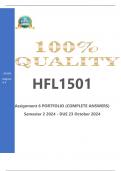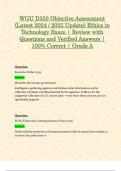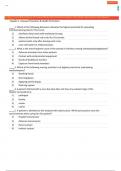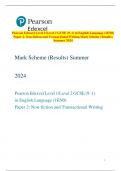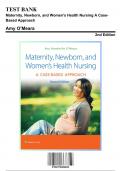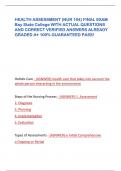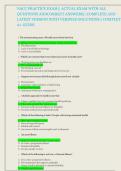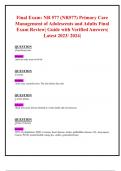Exam (elaborations)
HFL1501 Assignment 6 PORTFOLIO (COMPLETE ANSWERS) Semester 2 2024 - DUE 23 October 2024 | Course Historical Foundations of South African Law (HFL1501)
- Institution
- University Of South Africa
. QUESTION 1 1.1 Name one South African constitution of which you have learned in this module that embraced an approach of complete denial of the principle of constitutionalism. (1) 1.2 Provide evidence from the Constitution of the Republic of South Africa, 1996 that supports the statement that the...
[Show more]
